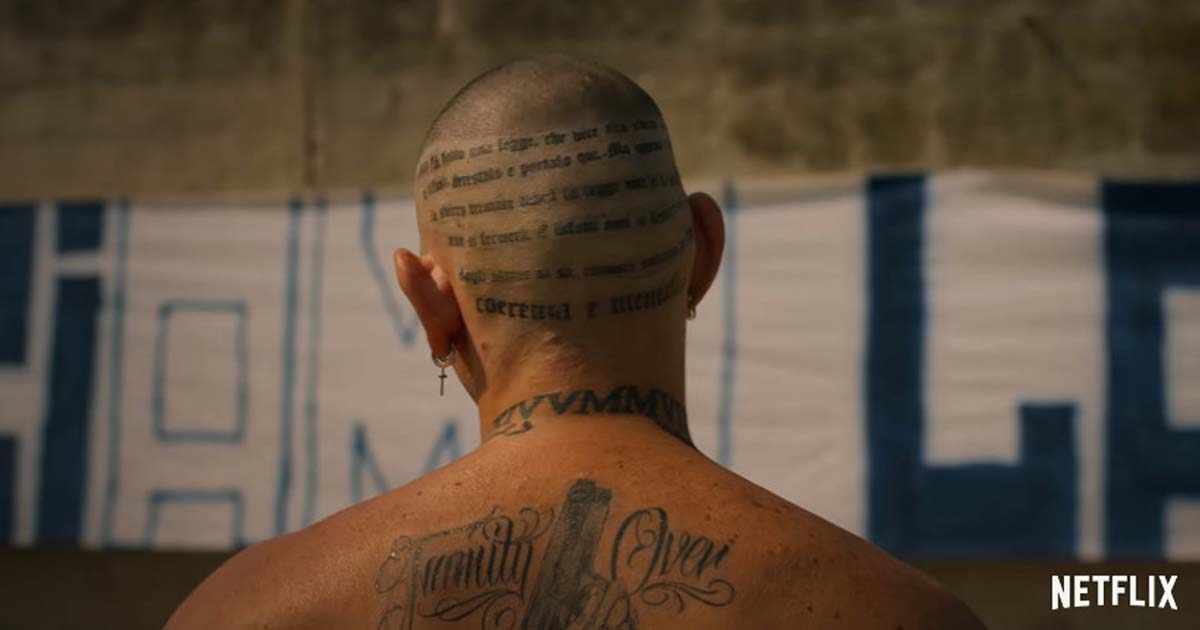Ultras are defined as organised football fans noted for their fanatical support of a team. The term originated in Italy, where it still exists to this day, despite perhaps being now more closely attributed to hooligan groups that a British audience might better recognise as firms. This can be confusing, especially for non-football fans. Fortunately, Francesco Lettieri’s Ultras is a relatively simple affair, although that is not necessarily a good thing.
Ultras follows Sandro (Aniello Arena), a member of the ultra group the ‘Apache’, who is banned from attending matches. Now in his fifties, he begins to question his devotion and his life choices. At the same time, he begins to consider settling down after meeting Terry (Antonia Truppo), while also trying to prevent Angelo (Ciro Nacca), the younger brother of his deceased friend, from making the same mistakes he has.
At its heart, Ultras is a film about fraternity, loyalty and fanaticism, but it never manages to convey these themes in a way that is compelling. Shirking the traditional scenes of violence one would expect from such a film, it instead tries to depict the community and friendship between those involved in such groups. Audiences are supposed to feel sympathetic towards the characters, but this borders upon the impossible.
Characters are barely developed and, combined with their violent behaviour and acts of hooliganism, the film becomes mostly frustrating as a result. Moreover, the main source of drama – the conflict between older and younger members of the Apache – is not as gripping as one would hope from this type of film, in part due to the two-dimensional characterisation.
That is not to say the performances here are poor. Daniele Vicorito is genuinely imposing as the extremely violent rabble-rouser Gabbiano, and Nacca captures Angelo’s inner turmoil and desire for any sort of family very well. The majority of the other actors do an excellent job of depicting the passion and fanaticism of the fans.
Ultras is quick to stress that ‘no Neapolitan ultras were involved’ in its making, and that any banners, flags, and scarves are entirely fictitious. It even goes so far as to thinly veil any reference to the actual football team Napoli, instead referring to the team as ‘the Neapolitan team’ or simply ‘Azzurri’ (Blues). The extent to which this is done borders on comical, despite the serious undertones the film attempts to convey. When paired with the lack of material, it means that the film is, unfortunately, anything but ultra.
